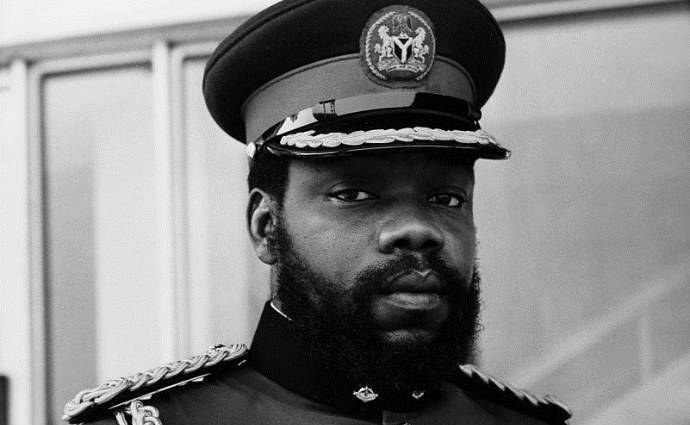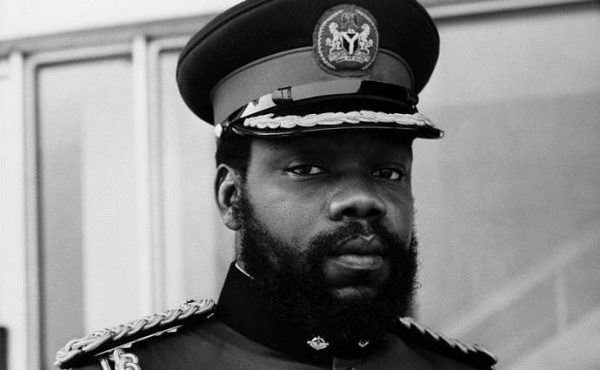“Now, therefore, I, Lieutenant-Colonel Chukwuemeka Odumegwu Ojukwu, Military Governor of Eastern Nigeria, by virtue of the authority, and pursuant to the principles, recited above, do hereby solemnly proclaim that the territory and region known as and called Eastern Nigeria together with her continental shelf and territorial waters, shall henceforth be an independent sovereign state of the name and title of ‘The Republic of Biafra’.”
On this day, 30th May, 1967, a much expected broadcast blasted over radios in households in the eastern part of Nigeria. Lt. Col. Odumegwu Ojukwu, Governor of Eastern Nigeria, had just declared the nation of Biafra and announced its independence from Nigeria. This was all the Nigerian government, headed by Col. Yakubu Gowon, expected the brilliant Oxford-trained Ojukwu to declare before it mobilized for rains of fire over innocent Biafrans.
Talks by Ojukwu and Gowon at the hills of Aburi in Ghana had failed, tensions were already high as the fiery military leaders returned to their separate sections of governance back home, weighing their odds or perhaps being more obstinate. Intercessions and interventions were also being setup by some self-appointed, well-meaning arbitrators who felt a sense of duty of averting the impending war. But all of such effort went to nought when the declaration of the Biafran country went out in an address -more like a revolutionary lecture- to renegades than a set of guerilla warfare plans. Biafra was ill-prepared and ill-equiped; of course, there was no way it could match Nigeria on military might at that point but Ojukwu thought to go ahead all the same.
All genocides have remote causes, after all. A majority of northeners believed that the January 1966 coup was mainly targeted at northern politicians. With such rhetoric traveling around and stoking ethnic sentiment, the ground for hostilities and chaos was, therefore, set after the series of events which spun off the 1966 coup.
The massacre of the Igbo people in the northern part of Nigeria was one of the main reasons the Aburi Accord was setup. Ojukwu could not bear seeing his kin being killed without the federal government taking proactive measures to prevent further occurrence. Recruitment into the army and civil service was also skewed largely in favour of the North and decrees which were enacted were targeted to some groups for the purpose of maltreating them.
Trust was so whittled down that Ojukwu demanded that the Aburi meeting, which was supposed to be a consensus to iron out their differences, be held on neutral grounds. Ojukwu was already distrusting of the West’s neutrality. Gowon too would not hold the meeting anywhere in Nigeria. General Ankrah of Ghana came to the rescue at the last minute for the meeting to take place. However, the accord was never materialised despite all the effort expended.
The war did not begin until 6th July 1967, 182 days after the Aburi Accord, and 37 days after Ojukwu had declared Biafra a nation. The war eventually ended on 15th January 1970, and the damage would scar survivors on both the Biafran and Nigerian sides forever. Some estimates say that almost two million lives were lost, as a direct consequence of the war or from associated causes such as famine, malnutrition, and so on – in Biafra land and in surrounding areas affected by the war.
Wole Soyinka got jailed when he interceded. Victor Banjo, a top officer in the Nigerian army, was executed by Ojukwu for treason when he took a neutral, anti-war, position. Christopher Okigbo was killed in action, defending a country he believed in but which never came to exist. Chinua Achebe, Kenneth Dike and other brilliant intellectuals of Igbo extraction worked hard to make the Biafran dream a reality. Finally, the sun set and the last shadow of Biafra was cast as the other half of a yellow sun.
To those who have taken the time and pain to do the study, they understand that Nigeria is not a cultural expression but merely a geographical expression with a collection of different ethnic groups. But in spite of the history of our origins, in spite of the shaky grounds on which the association of these diffracting Nigerian cultures forcefully bethroted in marriage by colonialism, we may say that never again shall we witness such carnage befall us collectively as a people.
Hence, because of all these, the last thing any Nigerian who understands the origins and the effect of the Nigerian Civil War wants to be reminded of now is a populist agenda by any of the tribes in the country.
We shall say Ozoemena (Never Again), in remembrance of the lives which were lost for a cause to be free of oppression. To those who never wanted violence or any of that tragedy that befell them; to the innocent and altruistic ones who called for peace but who were caught between crossfires, we say Ozoemena. And to the ones who remain here, on this side of life, sharing in the pain and trauma of their forbears who survived the war, let us all say Ozoemena – that we may never again have a revisit of that tragedy and that we may find a worthier path to nationhood as we travel together in this vehicle named Nigeria.


